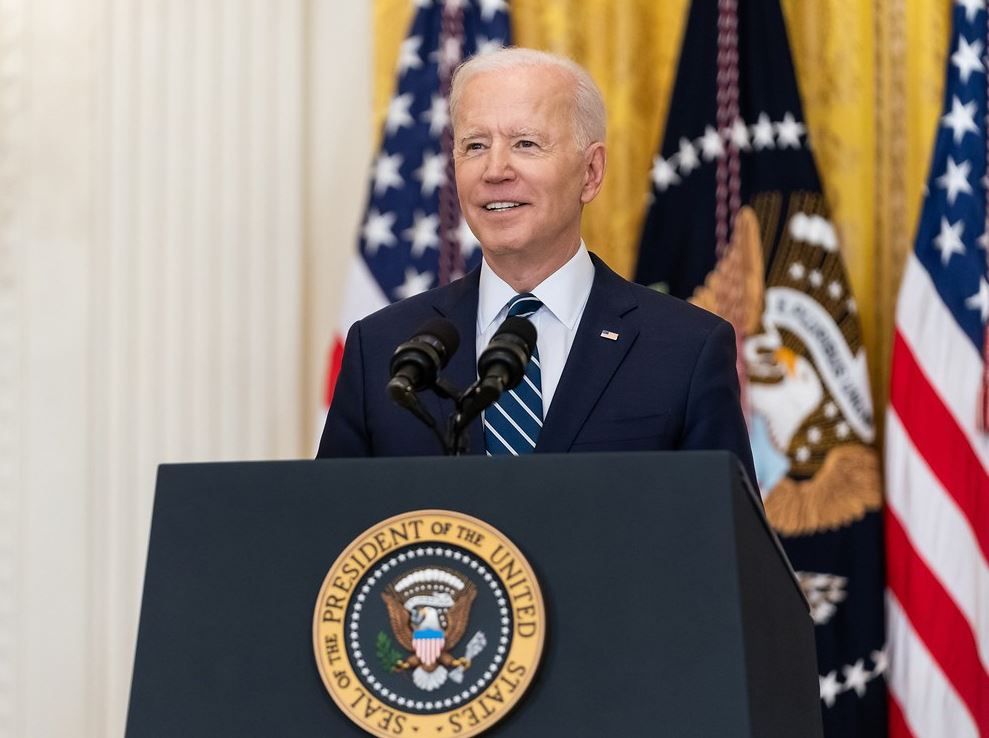On Tuesday, President Joe Biden will sign the Democrats’ historic climate change and health care measure in an effort to enhance his party’s position with voters less than three months before the midterm elections.
The plan would limit Medicare users’ yearly out-of-pocket spending on prescription drugs to $2,000. This is the largest government expenditure in the battle against climate change. By continuing subsidies offered during the coronavirus epidemic, it would also assist an estimated 13 million Americans pay for health care insurance.
Additional monies are used to lower the government deficit and are generated through increasing taxes on major corporations and increased Internal Revenue Service enforcement against rich persons and businesses.
On Friday, the House passed the bill along party lines, 220-207. The Senate had already cleared it days before, with Vice President Kamala Harris casting the deciding vote to pass it.
After returning from a six-day seaside vacation in South Carolina, President Biden will sign the bill in a modest ceremony in the White House’s State Dining Room before heading back to his home in Wilmington, Delaware. On September 6th, when legislators return to Washington, he hopes to throw a bigger “celebration” for the legislation.
In only three months, Biden and Congress have passed legislation improving benefits for veterans, regulating the semiconductor industry, and requiring background checks for the sale of firearms to minors. Both the president and the legislature have addressed Russia’s invasion of Ukraine and voted in favour of Sweden and Finland joining NATO.
Despite Biden’s low popularity, Democrats are optimistic that their recent wins will help them keep the House and Senate in November’s midterm elections. The 79-year-old president is considering a run for reelection and wants to improve his popularity with the public.
The White House announced on Monday that President Biden and members of his Cabinet will embark on a “Building a Better America Tour” to publicise the recent successes, but the president’s itinerary has not yet been revealed.
It was announced by the White House that President Trump “would hold a ceremony to commemorate the passing of the measure at the White House on September 6th.
Republicans argue that the extra company taxes included in the bill would lead to higher prices and a worsening of the nation’s current inflation crisis, which is at its worst level since 1981. The Inflation Reduction Act is what the Democrats are calling it, but impartial economists think it will have a negligible effect on prices at most.
This legislation is a scaled-back version of Biden and his party’s original, more expansive proposal from early last year to significantly increase funding for environmental and social initiatives.
Free pre-K, paid family and medical leave, increased Medicare benefits, and loosened immigration limits were all part of Biden’s first $3.5 trillion 10-year package.
But President Biden and other Democrats are praising the bill as a once-in-a-generation opportunity to combat the lasting consequences of climate change and the drought that has plagued the American West.
Solar panels, homeowner initiatives to increase energy efficiency, emission-reducing equipment for coal and gas power plants, and air pollution controls for farms, ports, and low-income neighbourhoods will all benefit from the bill’s allocation of funds, tax credits, and loans.
If the government spent an additional $64 billion over the next three years, it could assist 13 million individuals in affording the rates for privately purchased health insurance under the Affordable Care Act. Medicare’s ability to negotiate prescription prices would be implemented in 2026, starting with a small set of 10 medications. Medicare recipients will pay no more than $35 per month for the expensive diabetes medicine insulin beginning in 2020, and in 2025 their out-of-pocket payments for prescriptions will be capped at $2,000.

